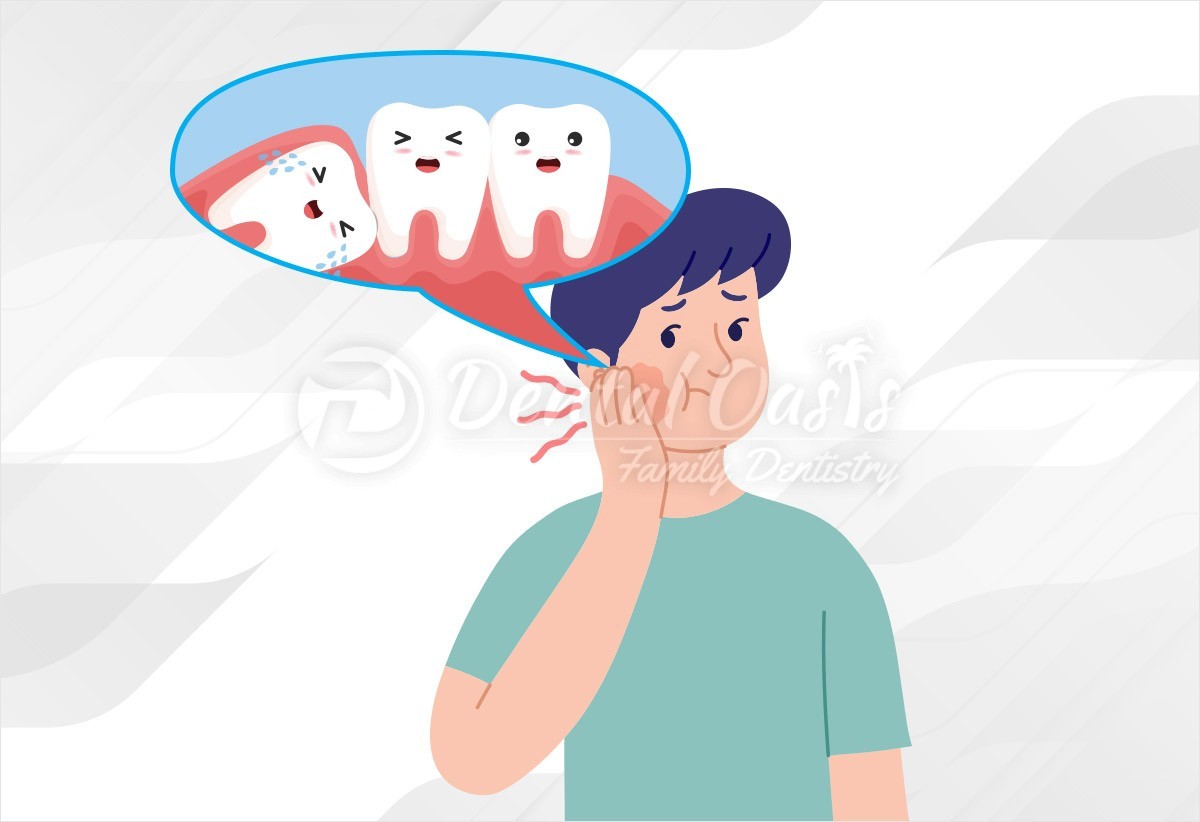Do You Have to Get Your Wisdom Teeth Removed (Understand These Signs)

Wisdom Teeth, the third set of molars, typically tend to erupt between 17 and 21 years of age. Contrary to their nomenclature they do not make us any wiser, however, they can create issues if they do not grow properly. While sometimes the symptoms associated with wisdom teeth include pain and discomfort, at other times the dentist may advise removal of wisdom teeth before they create any issues. In fact, an initial evaluation of wisdom teeth is recommended between the age of 16 & 19. While they are left alone if there is enough room to accommodate them, sometimes their removal is advised while the teeth are still soft & pliable.
Signs You Need Your Wisdom Teeth Removed
Let us look at some common causes & signs of wisdom teeth removal.
1. Impacted Teeth
It is common for the wisdom teeth to become impacted & not have enough space for their eruption. The symptoms associated with this condition include:
- Swollen Gums
- Pain in the jaw
- Difficulty in opening the mouth
- Bad breath
In order to prevent any further issues and increased oral health problems it is often recommended the wisdom tooth is such a condition be removed.
2. Overcrowding
It is common for the wisdom teeth to grow crooked & to take too much space in the mouth. In such a situation of overcrowding the only option is to have the wisdom teeth removed. Not addressed in time, it can even lead to pushing the other teeth or damaging them. Extraction of the wisdom teeth can prevent the other teeth from being damaged.
3. Pain and Discomfort
If you experience pain & discomfort, it is important that you visit the dentist who will then undertake an X-ray. The dentist will be able to advice if extraction is the best solution or whether the pain will get better in time & extraction may not be required.
4. Difficulty in Eating
Sometimes difficulty in eating may be a sign that your wisdom tooth needs extraction. It is a possibility that food is being stuck between the teeth & the gums. This can, in turn, lead to a number of problems especially if you aren’t able to clean it well enough during brushing.
5. Sinus issues
Sometimes when wisdom teeth erupt & the roots develop, they can rub against the sinuses causing pressure. In turn this can lead to headaches & congestion.
6. Cyst Growth Around Wisdom Tooth
Tiny liquid filled sacs can grow around your impacted wisdom teeth and cause damage to your teeth & jaw. It is important that the issue be tackled before the cyst develops into a tumor.
7. Cavities
The position of the wisdom teeth sometimes does not allow for proper cleaning of the teeth. This can lead to thriving of bacteria leading to cavities & tooth decay. For the same reason, while you may be taking care of your oral hygiene by brushing & flossing, you may still be experiencing bad breath. With wisdom teeth erupting in hard-to-reach areas, these issues are fairly common. In fact, this can also lead to infection or inflammation.
YOU MAY ALSO LIKE: Cavity Vs Stain
8. Inflamed gums
If the wisdom teeth start to break through the gums, a flap of gum tissue is created. The flap, in turn, traps food particles on which bacteria thrive. This also leads to tissue around the teeth becoming inflamed & to a condition known as pericoronitis.
In many of the above situations, wisdom tooth extraction may be recommended by the dental professional.
Wisdom Tooth Extraction Procedure Involve
The following steps are broadly followed in extraction of the wisdom teeth.
Pre-Procedure
A general or local aesthetic will be administered to you prior to the procedure. A local anaesthetic will typically be used for simple procedures. General anaesthesia on the other hand is used in complex cases where the tooth is trapped beneath the gum or there are other issues. This procedure may involve cutting the gums to extract tooth fragments. This kind of surgery is also recommended where all the 4 teeth need to be extracted in one go.
During the Procedure
Depending on how many wisdom teeth have to be removed; the procedure could take a few hours. Post removal the dentist will examine the surgery site to see that any dry sockets do not develop.
Post Procedure
The dentist will prescribe antibiotics & medication for the pain. During this time blood thinners are typically avoided.
Is It Better to Remove Wisdom Teeth Early?
The earlier the wisdom tooth removal, the easier it is on your jaw. The more firmly wisdom tooth are structured into your jaw, the more difficult the process gets. It is therefore imperative that you get regular dental check ups done for the dentist to pick up early signs. Needless to mention that should you experience any of the above symptoms do seek an appointment with your dentist without any delay.
To sum up
While some amount of nervousness is natural in getting the wisdom teeth removed. It is important to remember that if it is advised by your dental professional, it is the best way to eradicate oral pain as also prevent infection. Equipped with all the knowledge & aided by the experienced professionals, you will feel empowered & will soon be fully healed.
At Dental Oasis Family Dentistry, we offer both simple as well as surgical tooth extraction services. We offer you an extremely comfortable and stress-free tooth extraction procedure. Schedule an appointment with us if you experience intense pain around your teeth or jaws. You can also reach us via email at office@dentaloasispleasanton.com or call us on (925) 846-4491.




